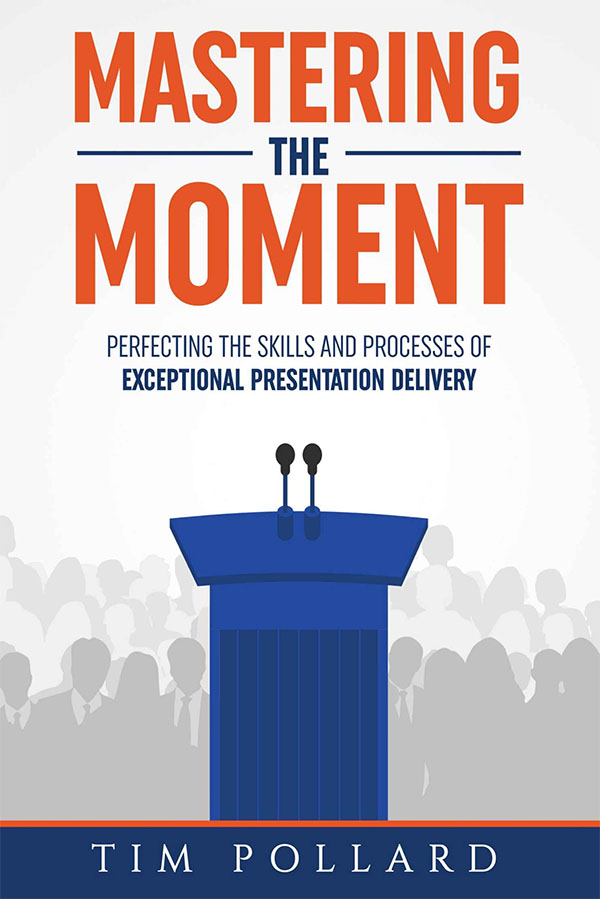Editor’s Note: here’s a guest post from our friend Brian Samrick of Cisco. Brian is a talented communicator and a gifted practitioner of the Oratium principles and process. In this post (which originally appeared on Brian’s LinkedIn page), Brian shares some great thoughts on the use of correct (and incorrect) grammar in your communication.
By Brian Samrick
Both science and intuition confirm that songs we enjoy as adolescents remain favorites our entire lives, so my children stifled their objections yesterday when I turned up the volume to Bryan Adams’s Run To You, a #1 song from 1984. They know that when I hear certain songs from the 80s, it gets louder. And yet, as much as I love the song, and although I’ve heard it hundreds of times, the first line always bothers me.
“She says her love for me could never die, but that’d change if she ever found out about you and I.”
There’s a lot to like. It’s rhythmic. It rhymes. And the revelation of infidelity provides intrigue. But it’s grammatically incorrect. Properly, the line should end “about you and me.”
It would be correct, of course, but it wouldn’t be as good.
As an English major and a professional communicator, I know that grammar is important because it provides guidelines that enable us to share a common understanding. But as a pragmatist, I also know that following the rules strictly isn’t always necessary, and as in the case above, isn’t always better. Here’s where I draw the line:
1. When clarity is compromised – Whether it’s the distractions that are getting bigger or the attention spans that are getting smaller, audiences aren’t reading carefully. The burden is on us writers, therefore, to ensure that our messages are as clear and concise as we can make them — so grammatical errors, no matter how small, are unacceptable when they compromise clarity. As Lynne Truss shows in the story that inspired the title of her book Eats, Shoots and Leaves, a misplaced or omitted comma can have catastrophic results.
A panda walks into a café. He orders a sandwich, eats it, then draws a gun and proceeds to fire it at the other patrons.
“Why?” asks the confused, surviving waiter amidst the carnage, as the panda makes towards the exit. The panda produces a badly punctuated wildlife manual and tosses it over his shoulder.
“Well, I’m a panda,” he says. “Look it up.”
The waiter turns to the relevant entry in the manual and, sure enough, finds an explanation. “Panda. Large black-and-white bear-like mammal, native to China. Eats, shoots and leaves.”
2. When the audience expects it – At the start of the millennium, well before smart phones were ubiquitous, my wife taught high school English. Now that I have a child in high school I understand their mentality a little better, but it always surprised me when her students drafted emails with so little regard to proper English. Clearly, if there’s anybody with whom you’d take care before sending a message, it’d be your English teacher, right? The same goes for us. If proper grammar is important to your audience, it’d better be important to you.
3. When it influences other perceptions – My wife advises our children to watch the way people treat waiters and waitresses because courtesy there, or lack of it, reveals much about a person’s character. Likewise, it’s not a big leap for a customer to infer that a company which produces poor writing — because people are moving too fast, because they don’t recognize it, or because they don’t care — also produces poor product design or poor customer service.
The point of business communications is to convey an idea, usually to change a perception or to drive an action, and grammar helps us convey those ideas clearly. If you choose to break a rule of grammar, do so knowingly and for effect. If you’re not sure about the rules, check out Grammarly’s 10 Best Grammar Resources for Professionals.
So, if Bryan Adams asked for my opinion, would I let his mistake slide? After pushing him to look for an equally effective yet grammatically correct phrasing, I would, because the rhyme is so powerful. The error doesn’t affect clarity, I don’t necessarily expect proper grammar in a song, and I don’t think he’s any less of a musician because of it. Although the end of the first line will always bother me, I’m still going to turn up the volume every time I hear the song because I love it. And in the end, that’s what matters.




